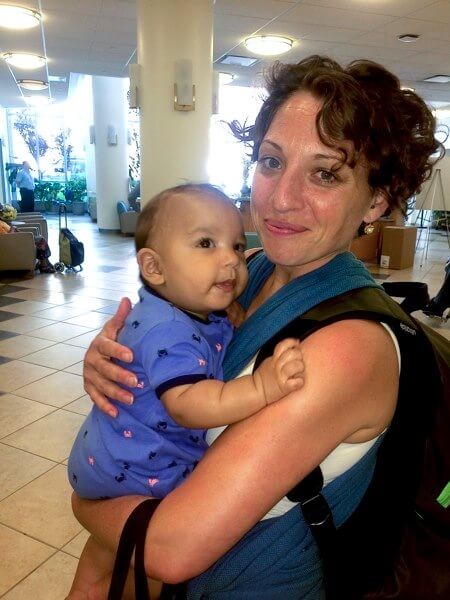By Naeisha Rose
The first week of August is World Breastfeeding Week, and to help raise awareness about the benefits of breastfeeding, Jamaica Hospital threw a huge baby shower for mothers with newborns and expectant mothers at its Garden Room rehabilitation center.
During the Aug. 1 event, the mothers learned about the benefits of breastfeeding and received brochures on breastfeeding and how to contact a midwife. There was a three-hour raffle where each mother received a gift and a big banquet with chicken, rice, mac & cheese and blue-and-pink cupcakes for their family.
Breastfeeding provides vital nutrition for babies and helps prevent health problems like asthma, obesity and diabetes later in life, according to The American Academy of Pediatrics.
The city’s Dep.artment of Health and Mental Hygiene said 80 percent of mothers start off breastfeeding their babies after birth, but those numbers drop to 30 percent within the first few weeks.
Jamaica Hospital has been striving for the past two years with its Baby Friendly USA program to both educate mothers on the importance of breastfeeding and help them to continually breastfeed for at least six months so that newborns can get as many health benefits as possible from the process, said Dr. Steven Inglis, the chairman of the OB/GYN department at the hospital.
“As a department, we have been trying to move the needle on breastfeeding for many years,” Inglis said.
In 2016, over 2,200 babies were delivered at Jamaica Hospital and the rates of continual exclusive breastfeeding grew from less than 5 percent to a remarkable 46 percent, according to Paula Utila, a lactation consultant at the hospital.
The DOH helped Jamaica Hospital move that needle by sponsoring baby-friendly certifications.
“The application fees [for baby-friendly certifications]got paid for by (DOH) for us to join in the process of us getting certified [for the program],” Inglis said.
Since then, Inglis, the midwives at Jamaica Hospital and lactation consultants have come up with a comprehensive plan to target new moms who have not breastfed exclusively or for long periods of time with their previous children.
Instead of leaving babies in nurseries, doctors leave them with their mothers to get them to start feeding and bonding immediately.
Cara Surico-Howell, 36, of Ozone Park, is a first-time mother who participated.
“I was amazed. There is a whole list of six to seven numbers to call for any breastfeeding issues,” Surico-Howell said.
Breastfeeding can result in babies growing faster, but as a petite mother, Surico-Howell, did not think she could keep up with the process at first. Then she sought advice from Utila.
“Basically he was building his milk supply and that was something the lactation consultant explained to me,” Surico-Howell said. “That’s normal.”
Utila advises that mothers breastfeed at night as much as possible and that they maintain their own health as much as possible.
“A lot of moms don’t have down pat that they’ve got to nurse during the nighttime. That really keeps up your supply because there is more fat in your milk in the night,” Utila said.
Since mothers are losing nutrients to their baby during the process of breastfeeding, Utila advises that they eat the way they did when they were pregnant and avoid eating fish to maintain their own health.
Jamaica Hospital is located at 8900 Van Wyck Expressway in Jamaica.
Reach reporter Naeisha Rose by e-mail at nrose































